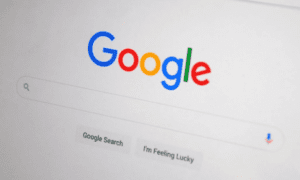A California federal judge announced plans to order Alphabet Inc.’s Google to open its app store following a jury verdict that found the tech giant monopolized Android app distribution and billing.
TakeAway Points:
- A federal judge plans to order Google (GOOGL) to open its app store globally after a jury found it monopolized Android app distribution.
- The ruling is part of broader antitrust scrutiny, with potential remedies including breaking up parts of Google or altering its business practices.
- This landmark decision could influence future regulations for other tech giants like Apple (AAPL), Amazon (AMZN), and Meta (META).
Google asked to open App store
In December, the Jury sided with Epic Games Inc., the maker of Fortnite, concluding that Google unlawfully abused its power over Android apps, which generated $14.66 billion in revenue for Google in 2020. US District Judge James Donato in San Francisco is now determining the policy changes Google must implement to comply with federal antitrust law.
Judge Donato indicated that his ruling would apply globally, as the jury found anticompetitive practices occurred worldwide. He criticized Google for resisting some of the remedies proposed by Epic Games, stating, “When you build a fence to keep everyone out there is going to be a stampede when you finally open the gate. You shouldn’t have built a fence in the first place.” Google estimated it would take 12 to 16 months to implement the proposed changes, but Donato urged a faster timeline, saying, “It’s Google. You can do better than that.”
Google’s past Antitrust Scrutiny
The December verdict is part of the broader antitrust scrutiny that Google has faced over the past decade. Last week, a different federal court ruled that Google illegally monopolized online search and advertising markets. The Justice Department, along with state attorneys general, is considering whether to seek a breakup of the company following that decision.
Potential remedies include breaking off parts of Google, such as its Chrome browser or Android operating system, or forcing Google to make its data available to rivals and abandon deals that make its search engine the default option on devices like the iPhone.
Epic Games has requested that some remedies, such as giving third-party app stores access to the millions of apps in the Google Play store, be in place for six years. Google countered that a year or two should suffice for apps to gain traction independently.
Judge Donato suggested his ruling would likely last at least three years and plans to appoint a three-member technical committee to oversee Google’s compliance. He assured Google’s lawyers that he does not intend to micromanage the company’s business, stating, “I have no intention of having a highly detailed decree that ends up impairing competition.”
Impact on Tech Giants
The ruling against Google is a landmark antitrust decision, raising significant questions about the power of tech giants in the modern internet era. Apple, Amazon, and Meta, which owns Facebook and Instagram, also face antitrust cases. Google is scheduled to go to trial in another antitrust case over ad technology next month. Remedies in Google’s search case are expected to influence the broader landscape of tech industry regulations.
The stakes are high for Google, which generated $175 billion in revenue from its search engine and related businesses last year. Judge Amit P. Mehta of the US District Court for the District of Columbia, who ruled on the search monopoly case, could reshape the core of Google’s business or order it to abandon practices that have cemented its dominance.
The Justice Department and state attorneys general are weighing their options for limiting Google’s power, including breaking up parts of the company or mandating changes to its business practices.



































